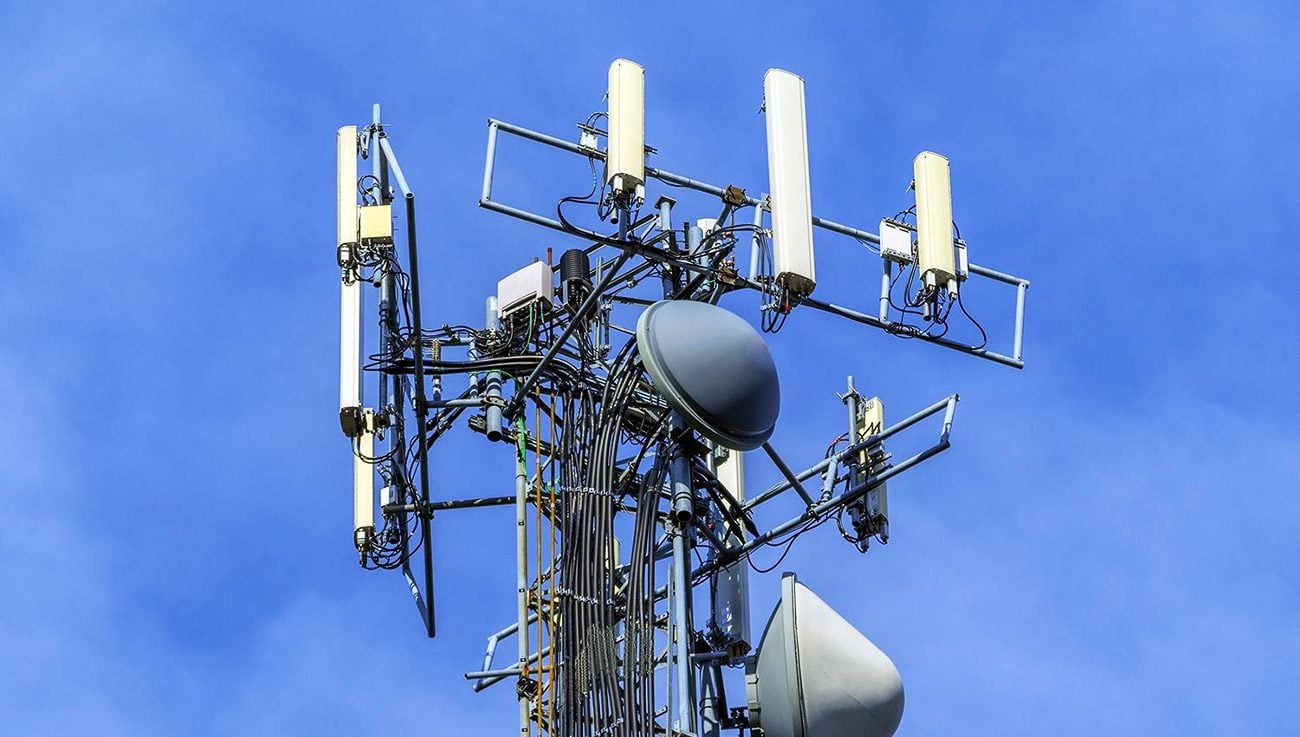
Phone2BTowers2BHarmful2BTo2BAnimals
IATA is concerned that airlines in the US could face new disruptions and problems next year caused by 5G. A mandate to upgrade radio-altimeters to FAA-approved systems in July 2023 is prepared badly, which could result in problems identical to those in January at the roll-out of 5G in the US. IATA concerned about 5G roll-out plan in the US and lithium batteries.
The International Air Transport Association (IATA) is concerned that updated radio altimeters will not be available on time to meet the July 2023 deadline that has been imposed by the FAA, Nick Careen, Senior Vice President of Operations, Safety, and Security said in Doha this week during a media briefing at the Annual General Meeting.
The UK, France, Canada, Japan, Australia, South Korea, and Thailand all introduced 5G without almost no problems for the airline industry. This is in contrast with the US, where a different version of the C-band system was deployed in January. At 4.2 to 4.4 Gigahertz, the spectrum of the US version is adjacent to the power levels that radio altimeters on aircraft use. Interference could result in potential safety issues, concerns that IATA voiced for years but was ignored, said Careen.
A slide shows the potential interference on aircraft systems caused by the high levels of energy from 5G. (IATA)
Although 5G was rolled out in January after a last-minute delay, the FAA initially blocked numerous aircraft types from operating in airports where the system was active. Only after a thorough review of the RA, most types were able to operate except at airports without a ‘no 5G zone’ around them. This affected numerous regional airports and has cost airlines millions extra. Careen referred to this situation as “bizarre.”
The FAA always said that a final resolution for the radio altimeters would follow later with upgraded systems. The agency has mandated that these should be introduced in July 2023, when full deployment of 5G is planned. This is pending an FAA Airworthiness Directive that is up for review.
This is what worries IATA because no system has been approved, so system providers are unable to guarantee that they will be available on time. “The timely availability of upgraded altimeters is a concern, as are the cost of these investments and the lack of certainty regarding the future spectrum environment. Furthermore, nineteen additional telecommunications companies are scheduled to deploy 5G networks by December 2023”, IATA said in a media statement.
Director-General Willie Walsh said: “FAA’s unilateral decision to require airlines to replace or upgrade their existing radio altimeters – which are approved by both the FAA and the US Federal Communications Commission – by July 2023 is deeply disappointing and unrealistic. The FAA has not even approved or certified all the safety solutions that it will require, nor have systems providers been able to say with certainty when the equipment will be available for much of the fleet. So how can there be any confidence in the timeline?”
“We find ourselves in a situation where we were mandated to implement radio filters and new radio altimeters on all aircraft operating into and within the US by July 2023. The FAA is claiming that there is consensus on this, but the manufacturers (of RA systems) won’t commit to this date and airlines aren’t really sure. They are not seeing anything in terms of a directive yet that explains this perfectly for them. And we are only a year away”, said Nick Careen. He predicted massive disruptions again for US air travel.
Careen called on the US regulators and industry to make sure there is coordination on this, the system is thoroughly tested, and sufficient bandwidth is available for existing radio altimeters. Also, there should be a maximum power limit for 5G transmissions and downward tilting of antennas, in particular near flight paths near airports. Airports should have precautionary zones around them and where this isn’t possible, 5G should be prohibited.
“Before deciding on any spectrum allocations or conducting spectrum auctions, governments must ensure that every frequency allocation/assignment is comprehensively studied and is proven not to adversely impact aviation safety and efficiency”, Careen said in his presentation. And airlines should not bear the costs of the replacement of updated systems.
More checks needed on transportation of lithium batteries
On a different subject, IATA is also concerned about the safety of the transportation by air of lithium batteries that are used in most electronic devices nowadays. With an expected market growth of 30 percent per year, IATA is worried about incidents with batteries, notably when shipments are mis-declared by rogue shippers. And this seems to happen more often.
“It is clear that we can safely transport these batteries, but the problem is illegal shipments of misdeclaration, so you don’t know what is being shipped. That is our primary concern”, said Willie Walsh. Qatar Airways has been pushing hard within IATA to step up on the issue, he said. “Most of the fires we had were in undeclared, badly-packed, sometimes refurbished lithium batteries. This is the risk where the systems in the airports sometimes miss picking this up”, Group CEO Akbar Al Baker added.
Qatar Airways has ordered 400.000 Fire Resistant Containers from Safran, the only airline so far to do so, says Al Baker. (Safran)
Indeed, Qatar was lucky to escape a serious incident some two months ago. A “close call” happened on a flight from the Indian sub-continent when a very small lithium battery inside a container started smoking. “We were very fortunate that it generated enough smoke to alert our pilot. We did an emergency landing in Pakistan and it was total destruction of half of the container”, said Al Baker, who added that lives will be lost if no action is taken.
Already before the incident, Qatar Airways in November ordered 400.000 special Fire Resistant Containers with Safran that confine any fires, but on the incident flight, a standard container was affected. But for the aviation industry as a whole, IATA calls on governments to step-up enforcement of safety regulations for lithium batteries. This should include higher penalties.
Views: 1





